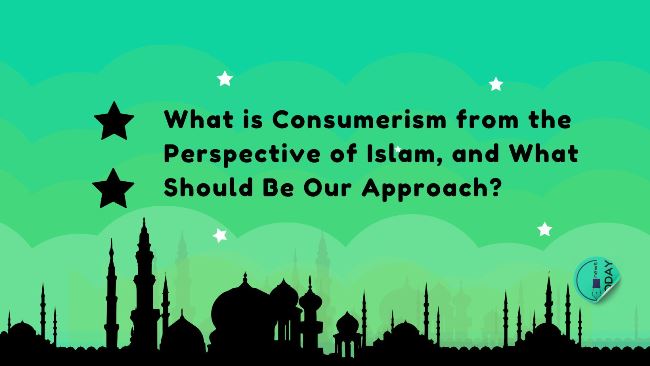Consumerism in Islam: Meaning and the Right Approach
What is Consumerism from the Perspective of Islam, and What Should Be Our Approach?

Consumerism refers to devoting the majority of one’s time and energy to consumption beyond the minimum necessities required for living. As time progresses, there may be a need to adapt lifestyle essentials. However, ensuring the availability of basic resources to maintain a healthy and balanced life is a universal requirement.
Beyond meeting these basic needs, human efforts should be directed towards the development of moral qualities and the welfare of society. On the other hand, if life is spent acquiring and indulging in ever-new possessions, it leads to extreme consumerism. Islam advocates a moderate approach for Muslims regarding food, clothing, and housing.
Islamic Teachings on Consumption
- The essentials of life—such as food, clothing, and shelter—are necessary for everyone to live a healthy and fulfilling life. However, the rest of our time and resources should be devoted to developing human qualities and contributing to the welfare of society.
- When most of one’s life is spent acquiring and consuming new and luxurious items, it leads to extreme consumerism, which Islam discourages.
- Islam advocates for a middle path in eating, dressing, and living.
Hazrat Ibn Abbas (RA) said:
“Eat and dress as you wish, but avoid two things:
- Extravagance
- Arrogance
Luxury and excessive comfort can lead to pride, arrogance, and transgression, which Islam strongly opposes. However, Islam does not discourage earning wealth or living a prosperous life. It encourages using surplus wealth for the benefit of the needy and for societal good.
If the surplus wealth after meeting one’s needs is used to assist the poor, the needy, and for societal welfare, Islam welcomes such practices i.e Zakat Donation
The Guidance of Al Quran
- Surah Al-A’raf (7:31):
“O children of Adam! Wear your adornment at every time of prayer, and eat and drink, but do not waste. Indeed, He does not like the wasteful.” - Surah Al-Ahzab (33:28):
“O Prophet! Say to your wives: If you desire the life of this world and its glitter, then come, I will provide for you and release you in a gracious manner.” - Surah Bani Israil (17:27):
“Indeed, the wasteful are brothers of the devils, and Satan is ever ungrateful to his Lord.”
Hadith on Wealth and Consumerism
The companion Abdullah ibn Shikhkheer (RA) narrated that he once heard the Prophet Muhammad (SAW) reciting Surah At-Takathur and saying:“Man says: My wealth, my wealth. But your wealth is only that which you consume, wear out, or give in charity. Anything beyond this will be left behind for others.”
Key Lessons and Responsibilities Consumerism in Islam
- Avoid Extravagance: Moderation is key. Avoid wastefulness and unnecessary luxury.
- Shun Arrogance: Material wealth and comfort should not lead to pride or transgression.
- Charity and Social Welfare: Excess wealth should be used to help the poor, the needy, and for the betterment of society.
- Focus on Human Values: Use your time and energy to nurture humanity and serve the community.
Islam encourages Muslims to lead a balanced life, prioritizing spiritual and social responsibilities over materialistic indulgence.




